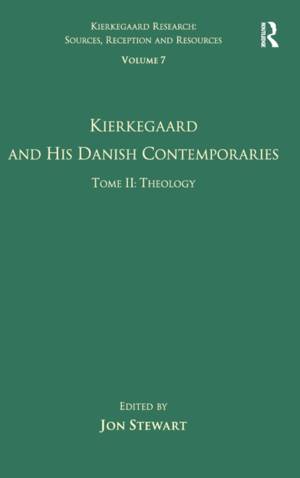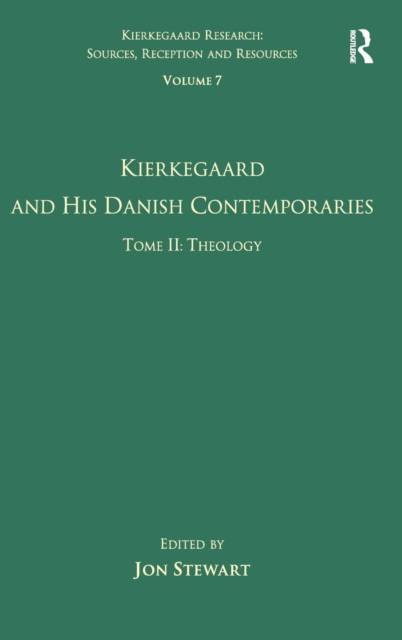
- Afhalen na 1 uur in een winkel met voorraad
- Gratis thuislevering in België vanaf € 30
- Ruim aanbod met 7 miljoen producten
- Afhalen na 1 uur in een winkel met voorraad
- Gratis thuislevering in België vanaf € 30
- Ruim aanbod met 7 miljoen producten
Zoeken
Volume 7, Tome II
Kierkegaard and His Danish Contemporaries - Theology
€ 343,45
+ 686 punten
Omschrijving
The present volume features articles that employ source-work research in order to explore the individual Danish sources of Kierkegaard's thought. The volume is divided into three tomes in order to cover the different fields of influence. Tome II is dedicated to the host of Danish theologians who played a greater or lesser role in shaping Kierkegaard's thought. In his day there were a number of competing theological trends both within the church and at the Faculty of Theology at the University of Copenhagen, and not least of all in the blossoming free church movements. These included rationalism, Grundtvigianism and Hegelianism. In this quite dynamic period in Danish ecclesial history, Kierkegaard was also exercised by a number of leading personalities in the church as they attempted to come to terms with key issues such as baptism, civil marriage, the revision of the traditional psalm book, and the relation of church and state.
Specificaties
Betrokkenen
- Uitgeverij:
Inhoud
- Aantal bladzijden:
- 378
- Taal:
- Engels
- Reeks:
Eigenschappen
- Productcode (EAN):
- 9780754668732
- Verschijningsdatum:
- 28/11/2009
- Uitvoering:
- Hardcover
- Formaat:
- Genaaid
- Afmetingen:
- 156 mm x 234 mm
- Gewicht:
- 707 g

Alleen bij Standaard Boekhandel
+ 686 punten op je klantenkaart van Standaard Boekhandel
Beoordelingen
We publiceren alleen reviews die voldoen aan de voorwaarden voor reviews. Bekijk onze voorwaarden voor reviews.






